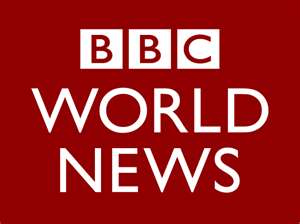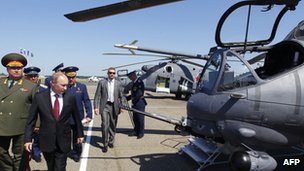At the end of World War II, Truman, Churchill and Stalin divided up the world between them. It was an ingenious scheme to rule the Earth by tacit agreement by means of the Hegel principle of the dialectic. The result was a period referred to as The Cold War, and it lasted from 1945 till 1991. For all intents and purposes the world was ruled by the two super powers: the United States and the Soviet Union. With the exception of China, a few Muslim nations and a few third-world nations that refused to court the New World Order, these two super powers (the US and the USSR) agreed to rule the Earth while pretending to be enemies. Thus, rogue regimes in small countries were easily suppressed and/or replaced.
After the Cold War ended and the Soviet Union was dismantled in 1991, the United States stood as the sole remaining superpower: the unchallenged empire. The age of Reaganesque diplomacy was upon us. The Earth was the West’s apple ready to be picked.
For 20-plus years now the kings of Congress, Senate and the White House have played their elite games knowing that there was no one to stop them. Nation after nation fell to their relentless advance. Through undercover agencies and “intelligence operations” they organized secret coups, undermined regimes and replaced them with regimes they preferred … all without public awareness or acknowledgement.
This was all done under the aegis of The New World Order. But now it appears that the decadent elite of the West may have seen their best days and are loosing momentum. The Zionist banker-elites that run the U.S. are making enemies in high places as they pursue their well-known policy of disrupting and overthrowing small sovereign nations and killing elected leaders to install new regimes more friendly to western banks and corporations.
Today, both Russia and China are making it clear that they no longer feel obliged to stand by and allow empire-minded western leaders continue knocking over small sovereign nations to build hostile military installments in Russia’s and China’s back yards.
The bullying Zionistic policies of the U.S., empowered by western bankers, is seen as blatant aggression and exploitation. A growing number of nations are declaring that they have had their fill of it.
With Russia and China offering to help nations like Syria and Iran who are threatened by takeover by the US, the EU and Israel, the face of the World Order is changing. Russia and China together are a formidable deterrent to western imperialism.
With pressure from Russia and China against U.S.’s Zionistic expansion, expect to see some falling-out among European leaders who have, in the past, stood by the policies of U.S. aggression but are now re-thinking their complicity with the crimes invented and perpetrated by Washington D.C..
__________________________________
 Russia Is Standing By Syria’s Assad
Russia Is Standing By Syria’s Assad
 As the United Nations warns that Syria has descended into civil war, Russia continues to back President Bashar al-Assad in the face of growing international condemnation.
As the United Nations warns that Syria has descended into civil war, Russia continues to back President Bashar al-Assad in the face of growing international condemnation.
Konstantin von Eggert, political commentator for Kommersant FM radio in Moscow, looks at why the Kremlin is steadfastly supporting the beleaguered Syrian government.
Foreign policy analysts usually tend to explain Moscow’s inflexible stance on Syria by evoking arms sales to Damascus (Bashar al-Assad’s regime is said to have placed orders for Russian hardware to the tune of $3.5bn) and the Russian naval station in the Syrian port of Tartous.
But this alone does not account for Russia’s seeming indifference to the adverse effect that its international advocacy of the Assad government has on its relations with the United States, the European Union and the majority of the Arab states.
The explanation has a lot to do with Russia’s domestic policies and the obsessions of the Russian political class.
By standing up for Damascus, the Kremlin is telling the world that neither the UN, nor any other body or group of countries has the right to decide who should or should not govern a sovereign state.
If one looks at the Syrian crisis from this angle, many of Moscow’s previously inexplicable actions take on a new, clearer meaning.
Sovereignty is king
Ever since the fall of Slobodan Milosevic in 2000, but especially after the 2004 “Orange Revolution” in Ukraine, the Russian leadership has been obsessed with the idea of America and the EU engineering the overthrow of governments that, for whatever reason, they find unsuitable.
President Vladimir Putin and his team seem to be convinced that something like that could happen to Russia.
Russia’s political class never accepted concepts like “responsibility to protect”, which aim to limit the ability of authoritarian governments to repress their own people.
Sovereignty, to the Russian leadership, means an unlimited licence for governments to do as they please within their national borders.
Ever since the Nato operation against former Yugoslavia in 1999, Moscow has deeply mistrusted Western humanitarian rhetoric and sees it as nothing but a camouflage for a policy of regime change.
The 2011 Libyan crisis revived these fears. Many Russian leaders, and Mr Putin himself, see then President Dmitry Medvedev’s decision to abstain during a vote on UN Security Council Resolution 1973, which authorised a “no-fly zone” over Libya, as a disaster.
In Mr Putin’s view, it opened the way for external intervention on behalf of one of the sides, in what was essentially a civil war, and the eventual removal of Col Muammar Gaddafi from power.
It seems that Russia’s “new old” president decided not to let this happen again. Moscow’s hard-line attitude thus becomes not just a way of defending particular interests, but rather a way of making a very important political point.
Does Moscow realise that another “coalition of the willing” could form to remove Mr Assad from power by military means – Libyan style?
I think it does. But, as I heard one of Russia’s most senior diplomats say recently: “We cannot prevent them [read – Western allies and rich Arab states of the Persian Gulf] from trying. But we will never give them a UN resolution cover.”
The presumed, unsaid subtext is: Russia will also make this task as difficult as possible.
__________________________________________________________________________________

